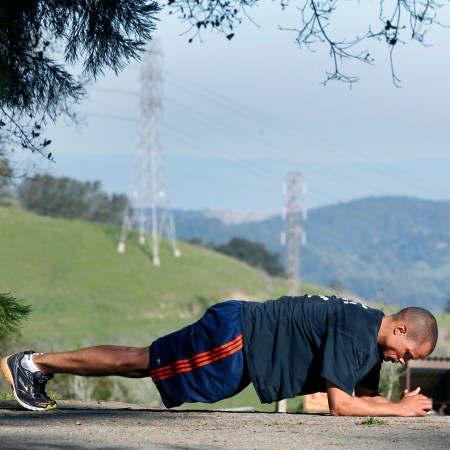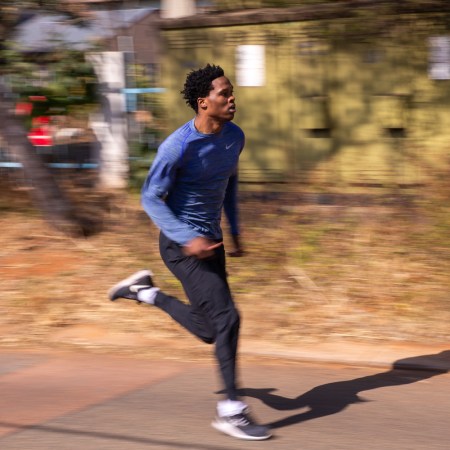Making players run until they puke is an old favorite of self-serious coaches. In sports movies (consider that pivotal scene in Miracle) it’s often posited as necessary and just. The team needs to head to hell and back together in order to finally understand what it takes to win. Right?
But “exercise-induced nausea” — a post-workout sickness that affects a higher percentage of experienced athletes than you’d think — isn’t something to glorify or celebrate. It’s actually a sign of significant reduction in blood flow to your stomach and intestines. The body handles an exercise intensity it’s never experienced before (or at least, hasn’t experienced in a while) by prioritizing blood flow to the heart, lungs and muscles. Then the (temporarily) non-vital digestive system is left feeling out of whack.
Why There's Nothing Wrong With Running in Cotton
Even in an age of polyester and elastane, cotton’s old-school cool is worthy of your attentionPreempt the Puke
The most commonly reported cases of exercise-induced nausea intersect with aerobic pursuits (running, cycling) and high-intensity interval training. But it can arrive whenever and especially if your fueling habits leave much to be desired. On the food and water fronts, it’s important to have something in your system. Eat a full meal about three to four hours before exercise, snack an hour to two beforehand and drink a cup of water each hour before a workout starts.
Also, if it’s a long period of exercise (like a practice with an aggrieved coach), definitely make sure to drink water throughout. When I was younger, coaches used to scream at us, “Water makes you weak!” Seriously — this would happen at summer training camps in humid, 100-degree heat. Well, it’s dehydration that makes you weak; it can lead to heat illness, which can put you out of commission for days, or, as in the case of far too many high school and college football players over the years, kill you.
Know Your Limits
That team setting is often where people overdo it. Athletes feel like they have no choice but to log sprint after sprint, god forbid they let the team down.
Hopefully, as recovery philosophy and sports psychology continue to make in-roads into professional, college and youth sports, coaches will realize that some players need to go at their own pace. It’s in the best interest of the team to not have athletes throwing up at the end of every practice. If they are, it could be a sign that they’re pushing them too hard, the player isn’t preparing properly or there’s an underlying health condition. Any additional signs of dizziness — migraine aura, chest pain, shortness of breath — should warrant an immediate trip to the doctor’s office.
For those in control of their own daily exercise routine, be wary of building up intensity too quickly or loading too many physical efforts into one day. That advice is particularly geared towards those who practice “event-minded” fitness. You know: if you’re trying to get in shape for the beach or a wedding and front-loading as much as possible. Slow down and take it easy. Prioritize patience and progress over puke.
The Charge will help you move better, think clearer and stay in the game longer. Subscribe to our wellness newsletter today.




















